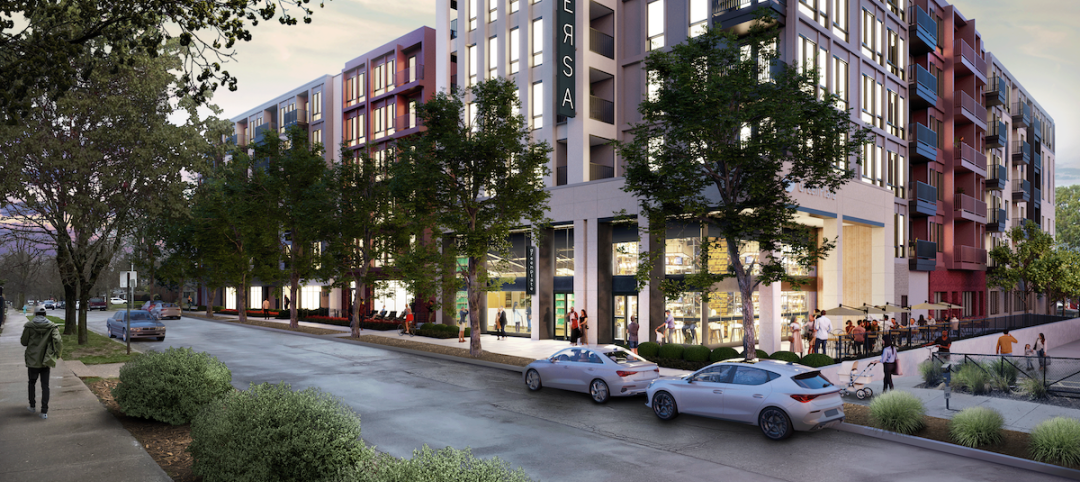Felicite Moorman remembers receiving a call from a multifamily property manager whose building was struggling with its thermostat system. “For one thing, the system wasn’t designed for multifamily; for another thing, the system had very little property management control capability,” she recalls.
The year was 2013, and Moorman was CEO of BuLogics, which specializes in providing wireless solutions for the Internet of Things. Her company had just launched StratIS, a wireless access, energy, and automation control, whose app gives property owners and managers the ability to create setbacks on thermostats and heating systems.
In short order, StratIS has made an imprint on the market. In 2014, it established a partnership with Jonathan Rose Companies, a green real estate policy, development, project management and investment firm, through which StratIS installed its pilot systems. Last year, StratIS struck a partnership with the door hardware manufacturer Schlage, which had introduced its Schlage Control Smart Locks that are designed for multifamily property owners, and whose ENGAGE technology enables lock control from the cloud via mobile applications that are compatible with StratIS’s access platform.
By late November 2015, StratIS had at least one of its products in 72,000 multifamily and hotel units in between 250 and 300 buildings. Moorman tells BD+C that between 14,000 and 20,000 of those units are student housing built by American Campus Communities. StratIS’s products also found their way into student housing developed and managed by Campus Apartments.
StratIS markets its software through distributors, integrators, and installers. “We give them something extra to sell,” says Moorman. She adds that StratIS’s products are relatively easy to install in new builds or renovations, with minimal resident disruption. “We precommission everything, which cuts down on the [complexity] of installation. I also test everything on my seven-year-old, and if she can’t use it, we try to figure out what happened.”
Property managers have the option of allowing renters to download StratIS’s thermostat-control app as part of their lease agreement.
Moorman says the next horizon for StratIS could be key cards, although she concedes there is far greater potential liability using this kind of technology for access into multifamily homes than in hotels. Longer term, Moorman sees opportunities for StratIS developing access- and HVAC-control products for the single-family housing market, which she acknowledges will be more competitive.
Related Stories
Multifamily Housing | Jun 15, 2023
Alliance of Pittsburgh building owners slashes carbon emissions by 45%
The Pittsburgh 2030 District, an alliance of property owners in the Pittsburgh area, says that it has reduced carbon emissions by 44.8% below baseline. Begun in 2012 under the guidance of the Green Building Alliance (GBA), the Pittsburgh 2030 District encompasses more than 86 million sf of space within 556 buildings.
Industry Research | Jun 15, 2023
Exurbs and emerging suburbs having fastest population growth, says Cushman & Wakefield
Recently released county and metro-level population growth data by the U.S. Census Bureau shows that the fastest growing areas are found in exurbs and emerging suburbs.
Engineers | Jun 14, 2023
The high cost of low maintenance
Walter P Moore’s Javier Balma, PhD, PE, SE, and Webb Wright, PE, identify the primary causes of engineering failures, define proactive versus reactive maintenance, recognize the reasons for deferred maintenance, and identify the financial and safety risks related to deferred maintenance.
Mixed-Use | Jun 12, 2023
Goettsch Partners completes its largest China project to date: a mixed-used, five-tower complex
Chicago-based global architecture firm Goettsch Partners (GP) recently announced the completion of its largest project in China to date: the China Resources Qianhai Center, a mixed-use complex in the Qianhai district of Shenzhen. Developed by CR Land, the project includes five towers totaling almost 472,000 square meters (4.6 million sf).
Mixed-Use | Jun 6, 2023
Public-private partnerships crucial to central business district revitalization
Central Business Districts are under pressure to keep themselves relevant as they face competition from new, vibrant mixed-use neighborhoods emerging across the world’s largest cities.
Multifamily Housing | Jun 6, 2023
Minnesota expected to adopt building code that would cut energy use by 80%
Minnesota Gov. Tim Walz is expected to soon sign a bill that would change the state’s commercial building code so that new structures would use 80% less energy when compared to a 2004 baseline standard. The legislation aims for full implementation of the new code by 2036.
Student Housing | Jun 5, 2023
The power of student engagement: How on-campus student housing can increase enrollment
Studies have confirmed that students are more likely to graduate when they live on campus, particularly when the on-campus experience encourages student learning and engagement, writes Design Collaborative's Nathan Woods, AIA.
Multifamily Housing | Jun 1, 2023
Income-based electric bills spark debate on whether they would harm or hurt EV and heat pump adoption
Starting in 2024, the electric bills of most Californians could be based not only on how much power they use, but also on how much money they make. Those who have higher incomes would pay more; those with lower incomes would see their electric bills decline - a concept known as income-based electric bills.
Multifamily Housing | May 30, 2023
Boston’s new stretch code requires new multifamily structures to meet Passive House building requirements
Phius certifications are expected to become more common as states and cities boost green building standards. The City of Boston recently adopted Massachusetts’s so-called opt-in building code, a set of sustainability standards that goes beyond the standard state code.
Multifamily Housing | May 30, 2023
Milhaus, Gershman Partners, and Citimark close on $70 million multifamily development in Indy
Versa will bring 233 studio and one- and two-bedroom apartments to Indianapolis's $271 million, Class-A Broad Ripple Village development enterprise.
















